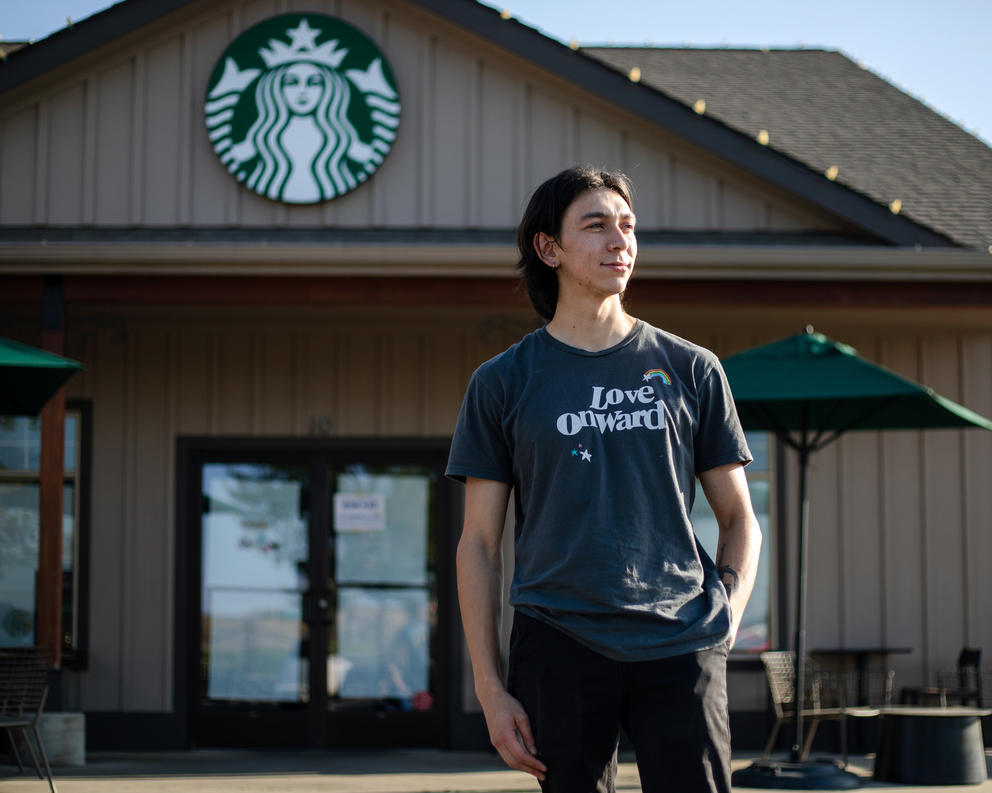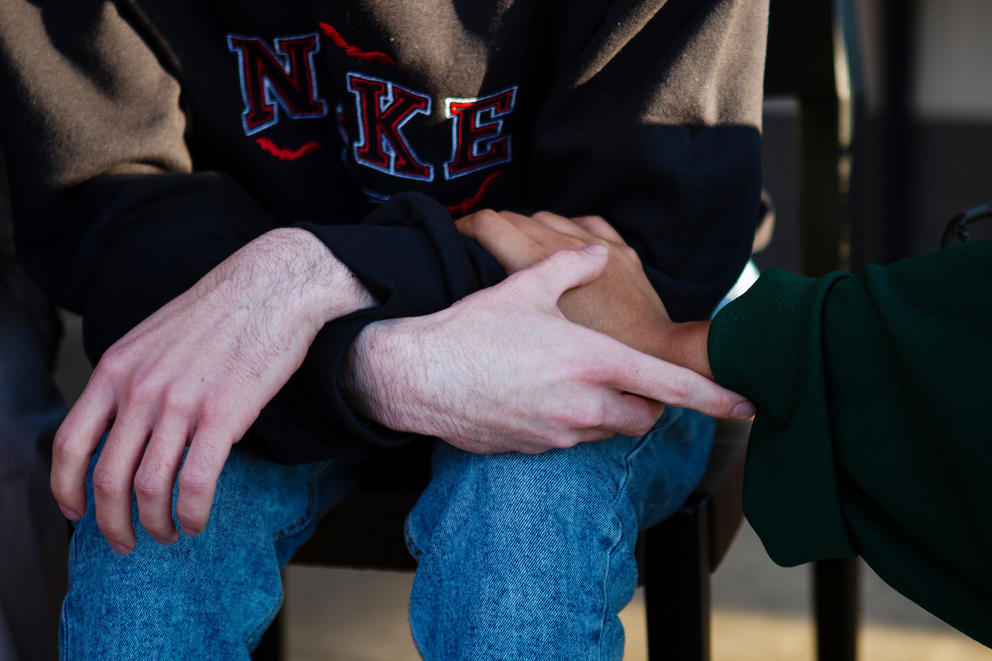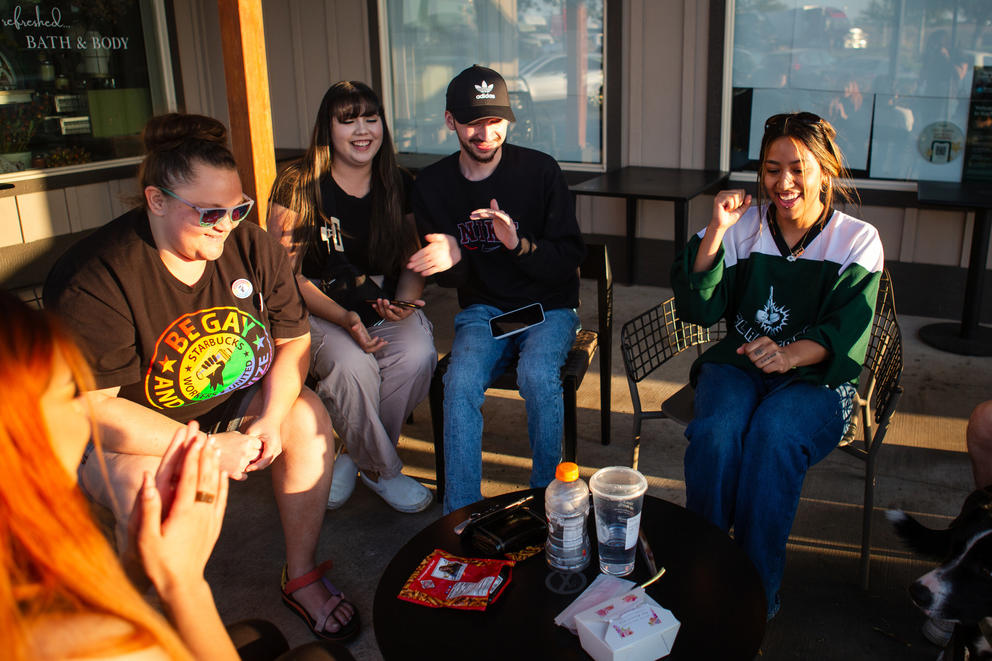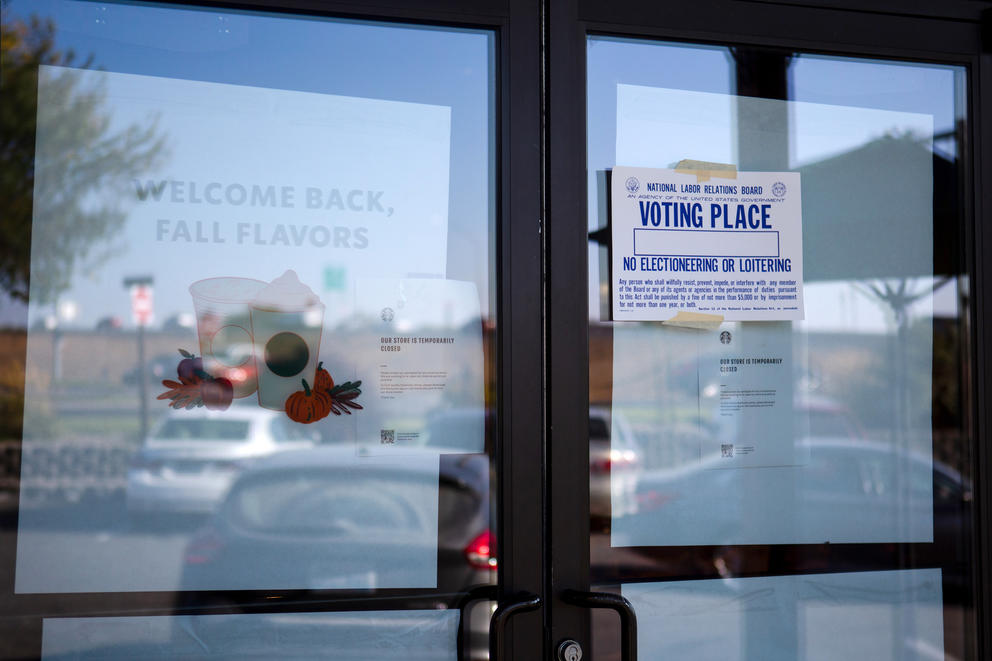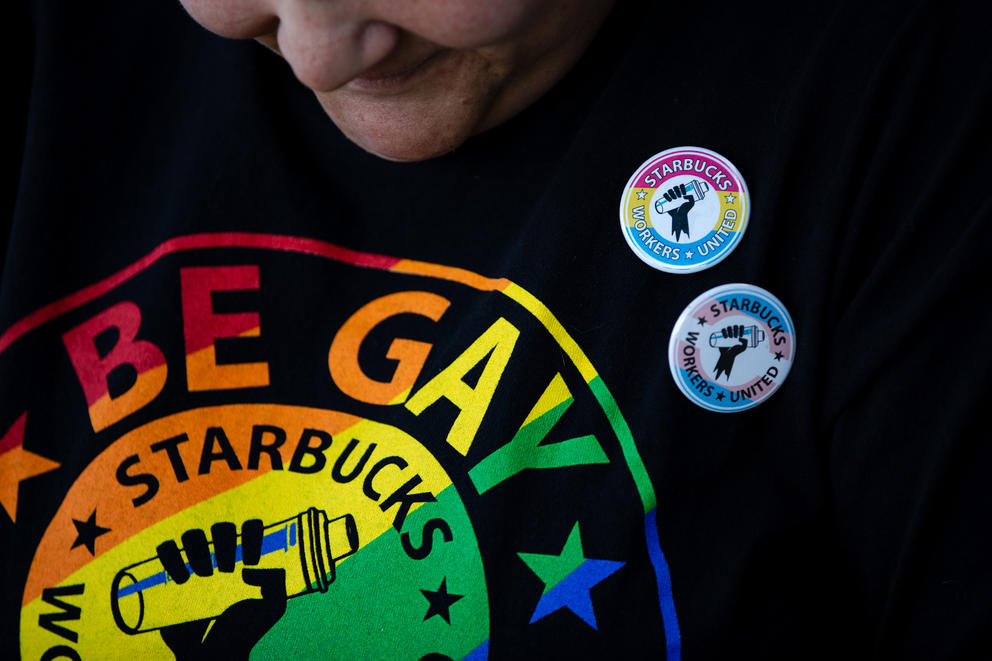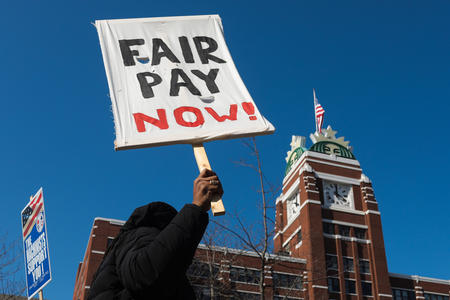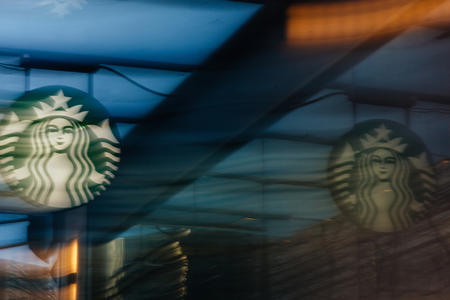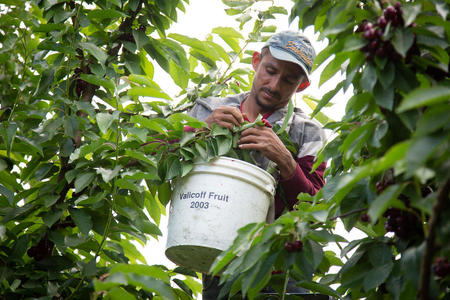In the end, baristas at Prosser’s lone Starbucks voted 21 to 6 on Tuesday to join the national Workers United union — a rare occurrence in Eastern Washington since organizing started at the coffee giant’s franchises nearly two years ago.
“Maybe it will inspire some rural communities, not just in Washington, Oregon and California but on the East Coast,” said Warwick, 22, the morning after the vote. “The goal is to get more stores to stand up.”
The Starbucks in Prosser, a town of 6,000 about 30 miles west of the Tri-Cities, will become the 27th location in the company’s home state to vote to join the union, but just the third in Eastern Washington.
While unionization has moved more slowly at the region’s Starbucks cafes — which baristas attribute partly to fewer stores, less Workers United presence and job-loss fears — workers say they still closely track the organizing efforts in Seattle and around the country.
Most unionized stores in the state line the I-5 corridor around Puget Sound. In May, a store in Walla Walla led the unionized push across the Cascades from the company’s Seattle headquarters. A cafe in north Spokane followed in June.
None of the 9,500 or so company-owned Starbucks shops nationwide have secured an initial contract due to accusations of bargaining in bad faith and ongoing litigation before the National Labor Relations Board.
“While Starbucks prefers a direct relationship with its partners, we respect the outcome of all fairly conducted elections and continue to make an effort to meet those unions at the bargaining table to progress good faith contract negotiations,” Rachel Wall, a director of communications for Starbucks, wrote in an email.
Warwick, a shift manager who transferred from another Starbucks in December, said many workers at the Prosser store struggled to get scheduled for enough shifts to keep their benefits. Hours that the company promised would return after the slow seasons never seemed to materialize, some shared. These concerns echoed those of employees at many other stores.
When the Walla Walla store unionized, he said, it inspired Prosser workers to try.
“Here’s this real-life example of it going well, and so close to us,” Warwick said. “The store is still running as usual, they have all of the benefits, nobody’s been fired.” Once the conversation started, he said, it was an easy sell.
This story is part of Crosscut’s WA Workplace Watch, an investigative project covering worker safety and labor in Washington state.
“It’s kind of a little mind-numbing, sitting there ringing up all these food items and doing $50 orders back to back,” Warwick said, “and being told that you’re still not making enough money to support more people on the floor, or you’re not making enough money to support the benefits that you’re using.”
Wall wrote that each store sets schedules based on employees availability and the location’s unique operational needs.
Ezra De Luna, a Prosser barista, said they were promised 20-30 hours when hired by Starbucks at the beginning of 2022, but never received enough hours to qualify for company benefits. Instead, the 24-year-old said, they work two jobs to make enough to keep up with bills and pays out-of-pocket for state health insurance.
De Luna said they and another co-worker watched as other stores unionized, but never took any action.
“We would talk about it every once in a while,” De Luna said, “but I think both of us were too scared to actually say the words.” De Luna credits Warwick with giving the Prosser team the “push” to take action.
A bad manager and reduced hours drove unionization efforts in Walla Walla, according to Dana Ayers, 40, a barista at the first Eastern Washington store to join Workers United.
But the isolation of the cafe, one of the city’s two standalone stores, slowed the push.
“It took a while because we weren’t connected to the west side of the state,” said Ayers, who has been with the company nearly 20 years. “It’s just slowly creeped into our psyche after a while and we realized that we literally don’t have any other options.”
The fear of retaliation and a shutdown weighed heavily on baristas, she added. “It definitely didn’t prevent us from winning our election,” she said. “But it’s still preventing us from taking action like going on strike.”
When unionizing across the country began, Sarah Coning, 38, said she and colleagues in Spokane couldn’t relate. The baristas were getting raises and plenty of hours and concerns were being dealt with, according to Coning, who has been at Starbucks for four years.
But overnight things changed, she said. A new manager arrived. The company reduced hours. They started running out of products.
“We used all of the means in place to report the things that were going on,” Coning said. “We got nothing. In fact, we got retaliation from our manager when she heard that we were trying to report things. And at that point, someone’s like, ‘Well, what do we have to lose if we jump on unionization, that’ll that'll get corporate’s attention.’”
Unlike at some unionized stores, workers at the store in Spokane’s Shadle Center said they have already seen a benefit to unionizing. Before the vote, the location was scheduled for a remodel, but the newly formed union negotiated the terms of the temporary closure, including which locations employees went to.
“Our partners were guaranteed the hours that they had before they left our store,” Coning said, “and were able to pick which area of town they wanted to work in.”
The Shadle Center store is set to reopen later this fall, according to the company.
With the three successful union votes in Eastern Washington, the baristas joined nearly 9,000 Starbucks workers around the country waiting on a first contract, according to the labor relations board. The board still has to certify the Prosser vote as well as a successful vote earlier this month at the Seattle Center shop, the 12th location in the city to unionize. Starbucks has challenged the election results at one other location.
Many new unions face a long and complex process from election to signing a first contract, which can take on average 465 days, according to a Bloomberg Law analysis. For many Starbucks stores that timeline has stretched far longer with no end in sight, as dozens of unfair labor practices go before the labor relations board, a Crosscut investigation found.
Since the pioneering cafe in Buffalo, New York, set off the unionization push in December 2021, 41 states have at least one unionized Starbucks store, according to board data. Of the more than 440 stores that have held elections, 81% voted in a union. In all, unionized stores make up about 3% of the U.S.’s roughly 9,500 company-owned stores.
The board lists 668 open or settled unfair labor-practices charges against the company or the law firm representing Starbucks. They allege surveillance of union activities and the discrimination, threatening and termination of union workers. From those, the agency has issued 104 complaints so far — including ordering Starbucks to rehire 30 employees, according to the board.
The company continues to deny any wrongdoing, and has itself filed 118 unfair labor-practice charges against the union. The labor relations board has dismissed all but 10 charges, according to the agency.
A hearing, which started this week, before board judge consolidated 29 cases and more than 40 complaints that allege Starbucks refused to bargain with certified bargaining units. The outcome could allow union members to participate in bargaining sessions via video conference, something the company has refused, and negotiate large-scale contracts covering multiple stores rather than store-by-store contracts. The hearing is expected to last at least through March 2024.
On a company webpage created to address unionization and bargaining, Starbucks stands by in-person bargaining, saying it’s the best format “to facilitate the give and take of negotiations.”
“We’re encouraged by the progress we’ve seen towards first contracts at stores where union representatives have approached bargaining with professionalism and an actual interest in discussing partner priorities with our bargaining committees,” Wall added.
Immediately after voting ended in Prosser Tuesday night, a representative from the labor relations board emptied the ballot box, dumping the yellow ballots onto a table. Minutes later, the union declared victory. Starbucks has seven days to file an objection before the election is certified by the board.
“It’s a really big win,” Warwick said. “Even if I don’t see the change while I’m at the company, I really hope that this can affect somebody else who is thinking about working at Starbucks, and maybe they’ll have a better experience with the company.”
Get the latest investigative news
A newsletter for resources, data and behind-the-scenes insight into investigative efforts.


